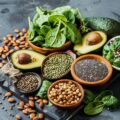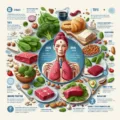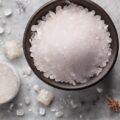Proper nutrition is critical for sports performance and recovery. Athletes exert tremendous energy and put significant strain on their bodies. Consuming key vitamins and minerals can help reduce inflammation, muscle damage, and fatigue.
Vitamin C
Vitamin C is an antioxidant that helps prevent cell damage and inflammation. Studies show that taking vitamin C before intense exercise reduces muscle soreness and speeds recovery.
Vitamin D
Vitamin D plays many important roles, including regulating inflammation and immune function. Maintaining optimal vitamin D levels can improve muscle function and reduce injury risk.
Vitamin E
Vitamin E is a fat-soluble antioxidant that protects cells from damage. Supplementing with vitamin E may assist muscle repair and growth due to its antioxidant and anti-inflammatory capacities.
Magnesium
Magnesium is involved in over 600 metabolic functions, including energy production and muscle contraction. Adequate magnesium intake protects cells, reduces lactic acid buildup, and alleviates muscle cramps.
Zinc
Zinc supports immune function and wound healing. Studies demonstrate that zinc deficiency impairs strength and endurance capacity. Zinc supplementation can minimize cold duration and maintain antiviral defenses.
Iron
Iron carries oxygen to working muscles. Low iron reduces aerobic capacity and endurance. Boosting iron intake facilitates oxygen delivery and helps alleviate exercise-induced iron losses.
Calcium
Calcium supports bone health and muscle contraction. Inadequate calcium intake heightens fracture risk and impairs muscle function. Meeting calcium needs can enhance bone density and strength for athletic performance.
Omega-3s
Omega-3 fatty acids reduce inflammation that causes soreness and stiffness. Omega-3s also minimize muscle damage from intense training while optimizing muscle protein synthesis.
Whey Protein
Whey protein provides essential amino acids that stimulate muscle growth and accelerate recovery. Consuming whey protein shortly after exercise augments protein synthesis and replenishes glycogen stores.
Frequently Asked Questions
What vitamins aid muscle recovery?
Key vitamins that can aid muscle recovery include vitamin C, vitamin D, vitamin E, magnesium, zinc, iron, and calcium. Getting enough of these micronutrients reduces inflammation, protects cells, facilitates oxygen circulation, supports bone health, and enables proper muscle contraction.
What minerals help with muscle repair?
Magnesium, zinc, calcium, and iron are minerals that help with muscle repair. Magnesium alleviates muscle cramps and aids energy production. Zinc boosts immune function for injury healing. Calcium enables proper muscle contraction, while iron carries oxygen for energy.
What should you eat after a hard workout?
After an intense workout, you should eat a mix of carbs and protein to replenish glycogen stores and stimulate muscle repair. Good post-workout snacks include chocolate milk, Greek yogurt with berries, eggs on toast, oatmeal with peanut butter, and chicken rice bowl.
How can diet improve sports performance?
Consuming nutrient-dense whole foods like fruits, vegetables, lean proteins, whole grains and healthy fats provides the vitamins, minerals, fuel and building blocks your body needs for optimal performance. Proper hydration and meal timing around exercise also enhances sports capacity.
Should athletes take vitamins?
Many athletes can benefit from taking certain supplements like a daily multivitamin, vitamin D, calcium, iron, omega-3s, antioxidants, protein powder, and sports drinks. However supplements should complement, not replace, a healthy balanced diet. Work with a sports nutritionist or dietitian to determine your individual needs.









